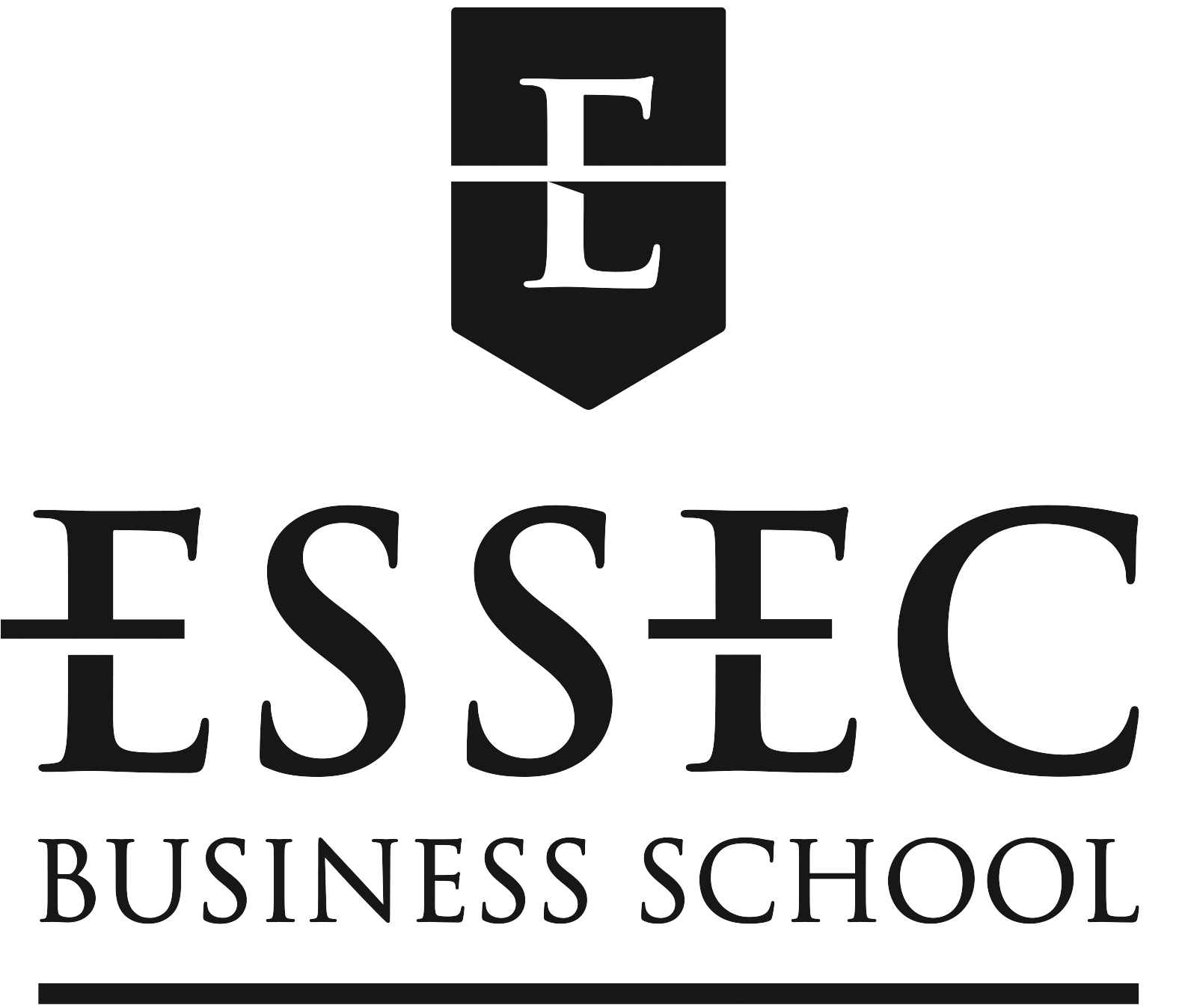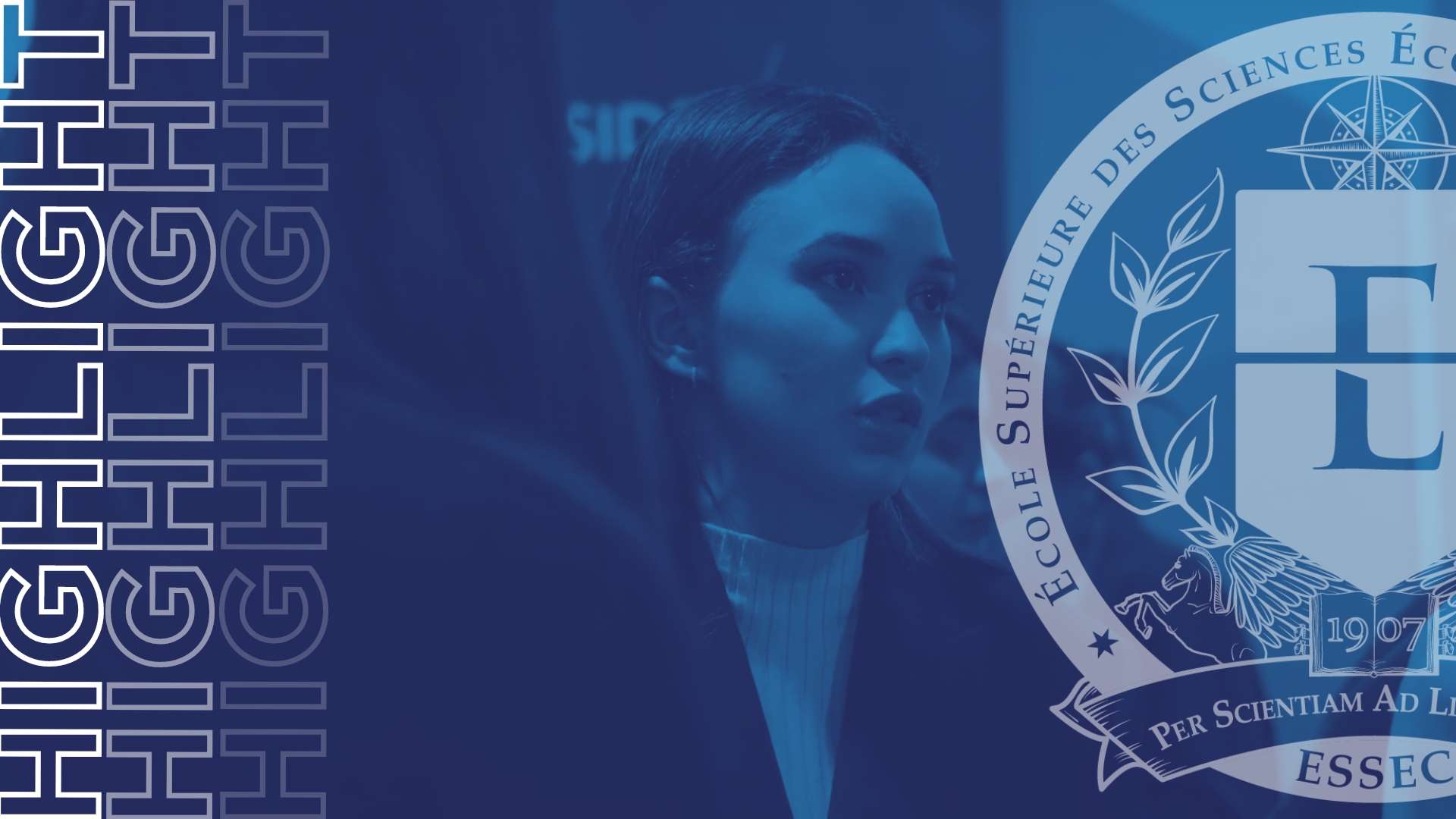- The competition allows students to build their career portfolios while learning how to do business for good.
- Partnership with Decathlon helps ESSEC and the sporting goods retailer further their sustainability mission.
- Student teams gain exclusive access to master’s degree-level workshops and coaching from industry experts.
Our linear “take, make, and waste” system is spiraling out of control. Today, the world generates an estimated 2.01 billion tons of waste annually, predicted to grow to 3.4 billion tons by 2050. Landfills are overflowing and spilling into the oceans, and trash burning sends clouds of carbon dioxide into the air.
As the world literally heats up, the circular economy—which seeks to reduce waste by recovering resources at the end of a product’s lifespan and channeling them back into the production cycle—may offer some reprieve.
But how can businesses integrate these circular economy concepts into their processes? This is the question that ESSEC Business School posed to aspiring business leaders during the ESSEC Case Competition for Future Leaders 2023.
Combining the Powers of a Top Business School with a Top Brand
The ESSEC Case Competition for Future Leaders, open to undergraduates in Southeast Asia and Australasia, was designed in alignment with ESSEC’s commitment to developing the business leaders of tomorrow.
By allowing students to work on a real-world business problem revolving around sustainability, the case competition hones their business acumen and reinforces the importance of doing business for good.
To achieve this, the 2023 edition, which kicked off on 18 February, saw the school partner up with Decathlon, a brand with a solid track record in pursuing sustainable practices.
In Singapore, for example, the French sporting goods retailer has launched a solar-powered store and encouraged reusable, eco-friendly blue bags to replace plastic bags.
Around the world, it has also begun piloting circular economy initiatives such as Buy Back, where the company will repurchase and repair used sports products. It also offers a range of Second Life products, which, as the name suggests, comprises refurbished preloved products in excellent condition for a second lease of life.
But Decathlon wants to do more—and by providing the company with an avenue to reach out to the next generation of potential business leaders for ideas, the ESSEC Case Competition for Future Leaders offered a solution.
The Business School Experience
17 teams from the best institutions in Southeast Asia and Australasia, including but not limited to Ateneo de Manila University, National University of Singapore, Nanyang Technological University, Singapore Management University, and University of New South Wales rose to the challenge: To develop a business model which can leverage the Decathlon’s existing circular-economy initiatives and create at least 10 times more value from each product.
The students were given three weeks to brainstorm and develop their strategies. During this period, they also gained access to six master’s degree-level workshops.
This included a problem-solving workshop run by Mongi Buckens, Chief Strategy and Digital Officer at advertising and data company PT City Vision; a design thinking workshop by the founder of The Human Factor, Marie-Laure Caille; and a public speaking workshop by Maria Kassova from professional training agency, Big Bloom, all of which served to equip students with the business knowledge needed to tackle the case at hand.
To help them understand the connection between planet, profit, and people, there were also workshops run by Anne Langourieux and Zuzana Dzurillova from the Matcha Initiative—an organization focused on helping businesses seek sustainable solutions, as well as by Decathlon CEO Stephan Veyret and Decathlon circular economy expert, Nathaniel Gregory.
To top it off, students were supported with two coaching sessions by Caille, Kassova, and Hardeep Matharu, also from Big Bloom, to help them structure their business case and hone their pitches further.
A Win-win For All
“I really appreciate that ESSEC offered these workshops to give us the knowledge and tools we need,” Gwynneth Black, a fourth-year business student from Ateneo de Manila University, says, adding that although she had taken part in a case competition before, the ESSEC Case Competition for Future Leaders was the first time she has seen contest organizers offer such comprehensive training.
Her personal favorites were the design thinking and problem-solving workshops. “We learned how to put SMART objectives in a business context and how to identify the problem to solve. I enjoyed how ESSEC encouraged us to think outside the box and be creative,” she shared.
“As an engineering student, I found it insightful to know how to incorporate empathy into our proposal. I believe the workshops have helped me develop the skills to frame and identify business problems,” Jonathan Koh, a fourth-year National University of Singapore (NUS) student, said.
But he and Gwyneth agree that business skills are not the only thing they have gained: They have also been able to network with students from different countries and, most importantly, seen firsthand how doing business and doing good can come together.
Jonathan says: “I’ve learned that sustainability involves the responsibility of all stakeholders. We need governments to create policies for sustainability, companies to implement sustainable practices and reduce their environmental impact, and consumers like us to consciously support sustainability and hold companies and governments accountable.”
It is a powerful message to take away and one that ESSEC hopes will resonate with these future leaders in the coming years.
Learn more about how the teams fare and the competition’s results in our second event coverage.
RELATED POSTS
Highlights: ESSEC Talent Day 2024
On 6 March 2024, students from the ESSEC Asia-Pacific campus rubbed shoulders with executives from top companies in the inaugural Talent Day event.…
SMIB Students Tackle Hard Issues at the Hinrich Foundation Inaugural Sustainable Trade Challenge
Master in Strategy & Management of International Business students dive deep into the Sustainable Trade Challenge, showcasing their prowess in…
CFA Research Challenge 2023-2024: Financial Modeling Boot Camp by ESSEC
In support of the CFA Institute Research Challenge 2023-2024, ESSEC APAC ran a financial modeling boot camp for students across Singapore. Find out…
MiF Career Immersion 2023 Series: Students Take Their First Steps into the World of Finance
To enable ESSEC MiF students to better understand the industry, ESSEC Asia-Pacific organized company visits to financial powerhouses as part of the…
MiF Guest Speaker Sylvaine Masson: MD on Succeeding in the M&A Landscape
Sylvaine Masson, an ESSEC Master in Management alumna, discusses success in Asia's M&A sector. She emphasizes the importance of a strong financial…
Highlights: ESSEC Career Seminar 2023
On 8 November 2023, students from the ESSEC Asia-Pacific campus attended various talks and panel sessions featuring senior executives from top…







